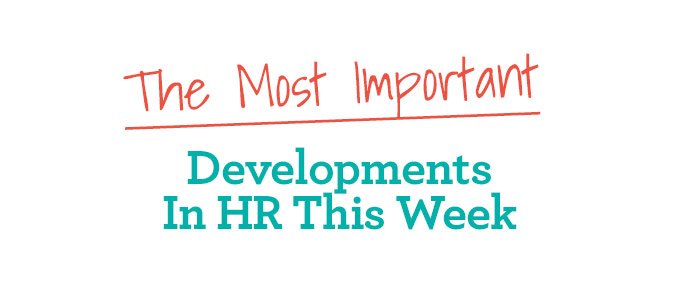
The Wall Street Journal just did an in-depth analysis of Glassdoor and found the site can be, and has been, manipulated by employers trying to boost their ratings. Glassdoor, the online site where employees anonymously rate and review their companies, has become a titan in the hiring and recruiting realm. Its influence can’t be overstated. Saying most every job seeker consults Glassdoor before accepting an interview, let alone a job offer, isn’t a stretch. Those ratings MATTER. And now the WSJ is telling us they might not be organic after all. The analysis of millions of anonymous reviews showed that five-star ratings on Glassdoor tend to surge, suspiciously. The WSJ identified more than 400 companies with unusually large single-month increases in reviews that were disproportionately positive. In some cases, the time period of the suspicious surges coincided with the deadline to make Glassdoor’s Best Places to Work list. Just one example: On Aug. 22, 2018, SAP received 193 reviews, most of them five stars. Turns out the company’s “employer brand” team sent an email to employees asking for reviews to help it hit the Best Places to Work list. SAP made the list. So, clearly companies are encouraging their employees to post positive reviews. The question then becomes, what do we take away from that? A grain of salt, that’s what. We hope job seekers do the same. WSJ


Technology has impacted, even disrupted, life as we know it, and new research by Burning Glass Technologies is telling us how it is changing our jobs. The jobs that will be most in demand in the not-too-distant future are complex, multidisciplinary hybrids, blending left- and right-brain thinking. Take marketing. It used to be a creative, right-brain role, until the data tsunami hit, requiring left-brain thinking and analysis, too. Those left-brain thinkers, the engineers and computer scientists of the world, will now be required to add right-brain tasks like teamwork, writing, and creativity. These types of hybrid jobs will be in high demand, and — bonus! — they’re immune to AI takeover, as jobs requiring left- and right-brain thinking can’t be done by a machine. (Yet.) One key takeaway is the importance of lifelong learning, and how everyone in the workplace should be honing and adding to their skill set. Josh Bersin


According to a new survey by Accountemps, 94 percent of employers would rehire a former employee who left on good terms. But only 52 percent of workers would apply for a job with a previous employer. Ouch! The survey goes on to recommend savvy rehiring strategies (namely, putting them through the regular interview process and asking why they left), but we’re more interested in why almost half of employees wouldn’t even consider going back to their former workplaces. Reasons include dissatisfaction with leadership, culture misfit, unfulfilling duties, and the company burned bridges. Do your current and exiting employees feel that way? Find out by surveying your staff and encouraging honest answers. HR can work on all of those issues if you know the reason employees are dissatisfied or leaving. Robert Half


For what feels like millennia, HR has been trumpeting the glories of retaining employees and the evils of high turnover. Now Forbes is saying: “Meh, let ’em go.” Um, what?!? It’s true. Forbes is telling us to snap out of our old mindset and face the fact that millennials are a much more transient generation. Because of that, the idea of employee retention is now a “vain attempt to transpose an outdated template onto a world that just does not fit it.” It’s also apparently like “trying to use an outdated piece of software instead of upgrading.” (OK, anyone else suspecting this article was written by a millennial?) Instead, we should use their skills to the fullest, allow them to grow, and give them meaningful work without expecting anything as antiquated as loyalty in return. It’s the best you can do. If you invest in their development and they leave within a few years, so be it. But do it right, creating pathways for growth, and offering free avocado toast and sour microbrews in the breakroom, and they just might stick around awhile. The problem, of course, with this whole theory is: Just because millennials don’t want to stay too long at one company doesn’t lessen the negative effects of high turnover. Forbes


This week, Congress introduced a bill that would raise the minimum wage to $15 per hour nationwide. The jury is still out about how business owners feel about it. Will the increased pay hurt the economy and result in decreased working hours for part-time people, essentially making the whole thing a wash? Look to Seattle for the answer. The Emerald City was one of the first to implement a gradual increase to a $16 minimum wage, prompting business owners to riot in the streets (not really, but they weren’t happy), and causing dire predictions about the city’s economy, especially in the restaurant industry. Studies found just the opposite happened. It’s all good. The key seems to be a gradual increase, rather than requiring businesses to jump from $7 to $15 overnight, and the new national bill includes this. The impetus behind the bill? House and Senate leaders say no American with a full-time job should be living in poverty. Amen to that. House Committee on Education and Labor










